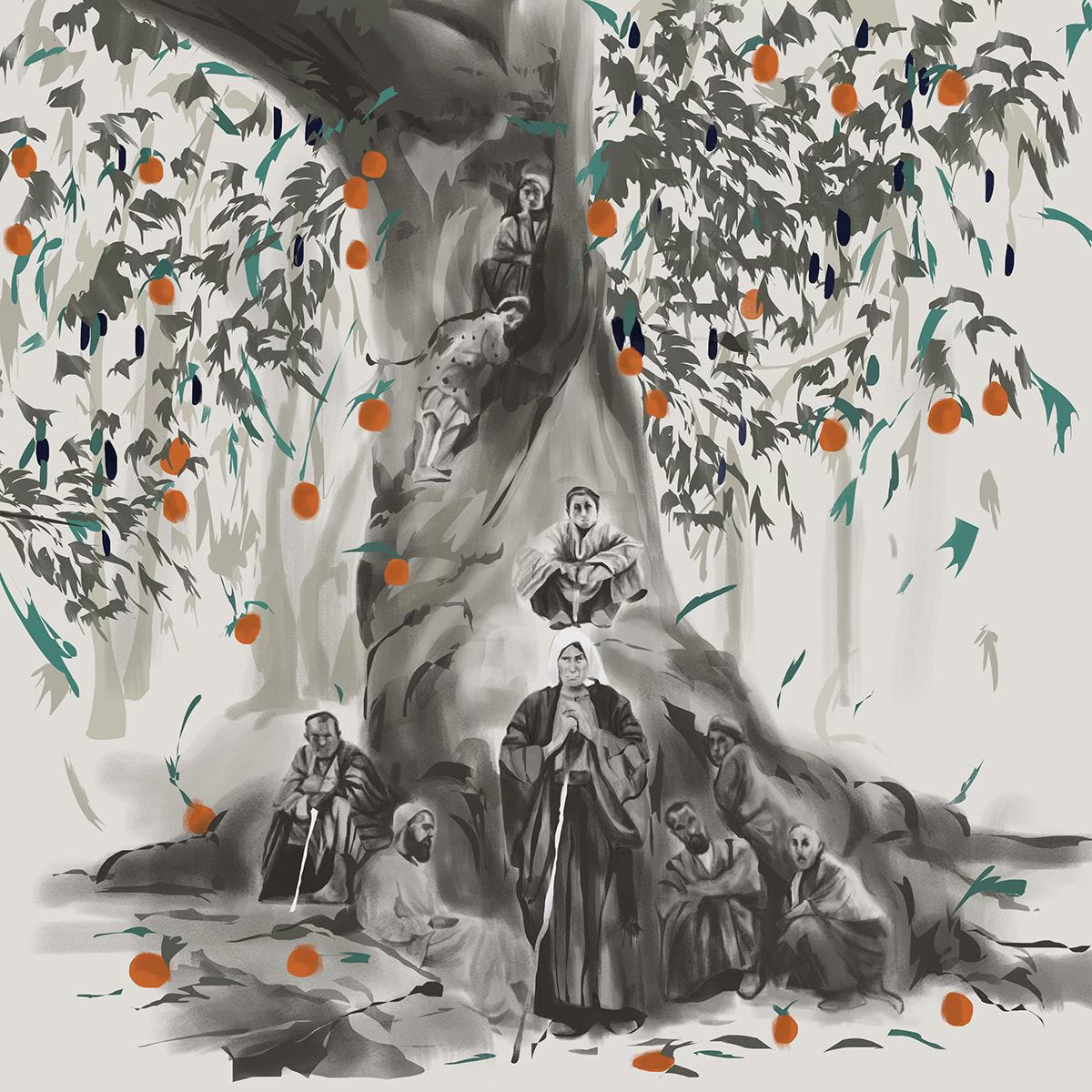Monday Matter: Crows, chaos and ecocide
Your biweekly Foreign Bodies roundup featuring essays and poetry on Palestine, crows in New Delhi, language barriers and more
Every other Monday, I send subscribers and gift recipients of immigrant mental health and storytelling newsletter Foreign Bodies stories I recently inhaled and adored. This is also a chance to do some housekeeping and give shout-outs and all that jazz.
From Brazil, with love

Last Sunday, a group of five girlfriends and I roamed the largest urban rainforest in the world: Rio’s Tijuca National Park. We learned the once-emptied woodland is part of the Atlantic Forest, which as a whole was decimated during 17th-century Portuguese rule. Logging, charcoal production, and coffee monocultures degraded the lands. Native fauna that once inhabited the forest disappeared, creating a rippling effect among the forests’ ecosystems. A Google search reveals a group of six enslaved Black Brazilians may have been responsible for helping save the land from total destruction. Tijuca has since become the perfect laboratory for replanting what was lost.
On our rickety ride out of the forest, I feel my insides erupt. I can’t shake the parallels with the ongoing ecocide in Gaza. I sob, and my friends let me.
“The full extent of the damage in Gaza has not yet been documented, but analysis of satellite imagery provided to the Guardian shows the destruction of about 38-48% of tree cover and farmland.
Olive groves and farms have been reduced to packed earth; soil and groundwater have been contaminated by munitions and toxins; the sea is choked with sewage and waste; the air polluted by smoke and particulate matter.
Researchers and environmental organisations say the destruction will have enormous effects on Gaza’s ecosystems and biodiversity. The scale and potential long-term impact of the damage have led to calls for it to be regarded as “ecocide” and investigated as a possible war crime.”
— The age of extinction (The Guardian)
It’s Earth Day today. I call my brother. We talk about replanting the olive trees when this is all over. I cry and watch footage of courageous students on college campuses, then pack a water bottle and text a friend to join me for yet another protest.
Resource(s) of the week
Something helpful and interesting and cool (*storytelling opportunity)
Resource Guides for Immigrants in Chicago: From Borderless Mag, a one-stop-shop for essential needs for Chicago immigrants, from food assistance to mental health support
*Palestinian writers: The National Writers Union and Study Hall have compiled a database of editors specifically looking to work with Palestinian writers (journalists, essayists, fiction writers, poets etc.) for English-language publications; your work does not have to be about genocide or war. Please email sauravsarkar2000@gmail.com or Roshan.Abraham@gmail.com. Hat tip: Jen Soriano.
What I’ve been reading lately
Stories and essays I’m loving, with an emphasis on decolonized readings for Palestine
‘My Life Turned Upside Down’: Palestinian women report on their lives amid Israel’s siege of Gaza (Hammer & Hope): “What would I like to do [when this is over]? I would like to have a good shower, a very hot shower. I want to go to my home, to clean my home, to cook real food for my kids. I don’t know. This question actually is the hardest one.” Six women in Gaza tell Hammer & Hope about their lives before and since Oct. 7. Read here.
Crows in this Part of New Delhi (Shreyasi Sharma, The Rumpus): “There is a way in which the world deposits around these gone trees and we don’t get to know. Trees get cut and not an indoor plant alerts us. Trees, do they ever come to know how we are feeling? New saplings turn up in our yard and we step on them to take an Uber or close the window to begin Zoom meetings. Do we ever come to know what is happening near those roots?” A gorgeous essay from Delhi writer and educator Shreyasi Sharma. Read here.
Staring Down the Language Barrier (Elmaz Abinader, Panorama): “Arabic was our family language, only spoken at home and when heard by others, somewhat embarrassing… Arabic didn’t have a chance of survival in my body.” On assimilation, language loss and self-discovery during America’s “War on Terror.” Read here.
How to Stay Alive Underwater (Allya Yourish, ANMLY): “I can’t think of my father without pain, so for a time I try to stop thinking about him, treat every memory like a purpling bruise. There are opposite nights, nights when I prod at my rawest hurts, anxiously play through every voicemail from him I have saved, when I scan my memory to corroborate that I still know his nicknames for me, that I can still hear the cadence of his voice. Most of the time I can’t stand it, though. I have to stay above the grief or I will be beneath it forever, I think.” One of my favorite recent essays on grief. Read here.
This Little, This Late (Momtaza Mehri, Granta): “Rub my scalp and tell me who I could have been. / Feed me a morsel or two.” One of two beautiful poems from British-Somali author Momtaza Mehri, who won an Eric Gregory Award and the Forward Prize for Best First Collection with her collection, Bad Diaspora Poems. Read the full poem here.
Keep reading with a 7-day free trial
Subscribe to Foreign Bodies to keep reading this post and get 7 days of free access to the full post archives.




